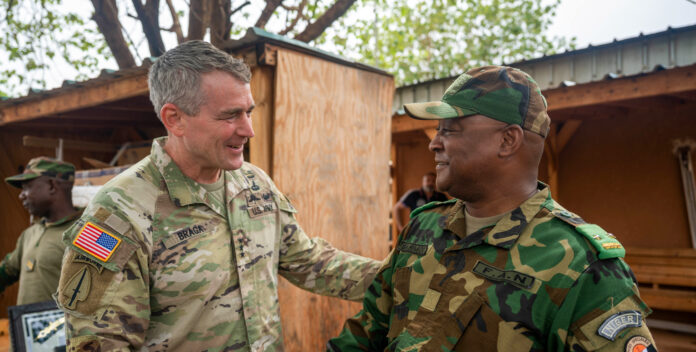
In an audacious move, Gen Abdourahmane Tchiani, also known as Omar Tchiani, has declared himself the new leader of Niger following a dramatic coup. The tumultuous takeover began when the presidential guards unit, under Tchiani’s command, seized President Mohamed Bazoum, plunging the nation into uncertainty. This abrupt turn of events has shattered Niger’s first peaceful and democratic transition since gaining independence in 1960, leaving the world in shock and condemnation.
President Bazoum, who had been considered a crucial ally in the fight against Islamist militants in the region, is still held captive by his own guards. The coup has been met with widespread condemnation from international bodies, including the African Union, ECOWAS, the EU, and the UN. Their collective disapproval reflects concerns about the fragile state of democracy in the West African region, where military takeovers have been on the rise in recent years, toppling governments in countries such as Mali, Guinea, and Burkina Faso.
Gen Tchiani, 62, had been in charge of the presidential guard since 2011 and received the rank of general in 2018 under the former President Mahamadou Issoufou’s administration. He had also been linked to a 2015 coup attempt against the ex-president, though he denied any involvement during court proceedings. In a televised address, Gen Tchiani cited several pressing issues plaguing Niger, including insecurity, economic woes, and corruption, as the reasons behind the junta’s takeover.
The coup in Niger has far-reaching implications for regional stability and geopolitics. With Niger’s neighbors, Burkina Faso and Mali, already turning towards Moscow after their recent coups, the international community closely monitors Gen Tchiani’s next moves and alliances. Ecowas, whose chairman had recently expressed grave concerns about rising terrorism and coups in West Africa, now faces a significant test in addressing this latest challenge.
As the world watches the uncertain aftermath of this coup, the future of Niger and its people hangs in the balance. The events in the country serve as a stark reminder of the fragile nature of democracy in the region and the delicate geopolitical balance that shapes its destiny.




